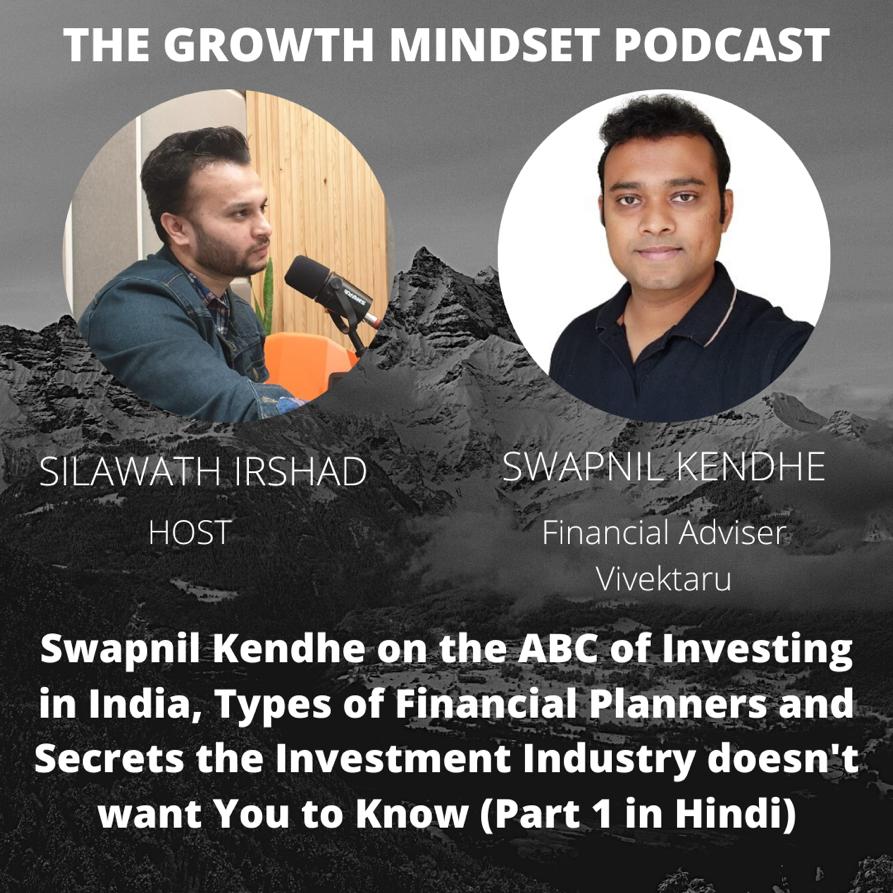
Approach & Fees
I work on the Education + Financial Planning model. I believe that my primary job as a financial planner is to educate my clients about the basics, principles, and practicalities of money management; so that they become capable of managing their money on their own.
Primarily, I work with resident Indians and NRIs who do the majority of their investments in India. I do not work with US, UK, and Canada residents.
I follow the Defensive or Passive approach of investing as described by Benjamin Graham in his investment classic ‘The Intelligent Investor’. In the defensive or passive approach, the emphasis is on the avoidance of serious mistakes or losses and to be free from effort, annoyance, and the need for making frequent decisions. (Why it makes sense to become a defensive or passive investor) I suggest Index Funds for equity investments. I do not provide stock advice. (Should I pay a financial planner who only recommends index funds?)
The fixed fee for the financial planning and retainer fee for two quarters (six months) for need-based consultation is ₹40,000 + 18% GST.
The current fee for subsequent review and need-based consultation for six months is ₹10,000 + 18% GST. You may not need to renew the engagement immediately after the end of the engagement. You can take a break between two engagements.
I will be the sole point of contact with you. I do not delegate financial planning and advice work to anyone else.
Process
If you decide to engage me as your financial planner, I will mail you a formal letter of engagement. If you agree with the terms of engagement, you shall take print of the letter, sign, and mail me the scanned copy.
I will share my bank account details with you after receiving the scanned copy of the letter of engagement. The engagement shall begin once I receive the fee.
After receiving the fee, I will share a data sheet with you in Google sheet format. You shall provide all your details in the datasheet.
After receiving the data, we will do 5 sessions of 1 hour each.
In the 1st session, I will try to understand your financial and life situation, your financial goals, aspirations, objectives, and your knowledge of personal finance and investing.
In the 2nd, 3rd, & 4th sessions, we will discuss important concepts in money management every retail investor should understand and construct an investment framework.
The 5th session will be the financial planning session in which we will arrive at a clear financial planning action plan.
I will share a Google sheet with you with the help of which we will do financial planning sessions. I use Google Hangouts for screen sharing during financial planning sessions. I do not do video calls since I find them distracting.
I share the financial plan in Google sheet format. I work on the advice-only model and do not follow up with all my clients about the execution of the plan. Therefore, implementation of the recommendations would be the responsibility of the client.
Please Note: Financial Planning is all about the future, and we do not know exactly how the future will pan out. Therefore, a better approach is to do calculations using conservative assumptions to get an idea about the savings and investments required to achieve financial goals; and then take money management one year at a time. I try to arrive at an agreed-upon action plan for one year and a set of rules for the client to follow. The client’s job is to execute the action plan and stick to the process.
After the financial plan is delivered, you can contact me to discuss anything related to personal finance, investing, and your financial planning during the engagement period. If your financial or life situation changes and there is a need for modifications in the plan, we will do additional sessions.
I believe that my primary job as a financial planner is to educate my clients about the basics of money management, the practicalities of investing, and financial planning heuristics so that they become capable of managing their investments on their own.
You can connect with me over WhatsApp (8308844318) to schedule an introductory call.
A few quotes I like
“It is remarkable how much long-term advantage people like us have gotten by trying to be consistently not stupid, instead of trying to be very intelligent. – Charlie Munger
“The best way to own common stocks is through an index fund that charges minimal fees. Those following this path are sure to beat the net results (after fees and expenses) delivered by the great majority of professionals.” –Warren Buffett
“If investing is entertaining, if you’re having fun, you’re probably not making any money. Good investing is boring.” – George Soros
“When there are multiple solutions to a problem, choose the simplest one.” – John C. Bogle
“They think that intelligence is about noticing things are relevant (detecting patterns); in a complex world, intelligence consists in ignoring things that are irrelevant (avoiding false patterns)” – Nassim Nicholas Taleb
“Investing success does not accrue to those with savant-like expertise in one field of intellectual endeavor, but rather rests on four pillars: a command of financial theory, a working knowledge of financial history, an awareness of financial psychology, and a solid understanding of how the financial industry operates. Like the decathlon winner, the successful investor is rarely the world champion in a single event, but rather someone who excels at all.” – William J. Bernstein

